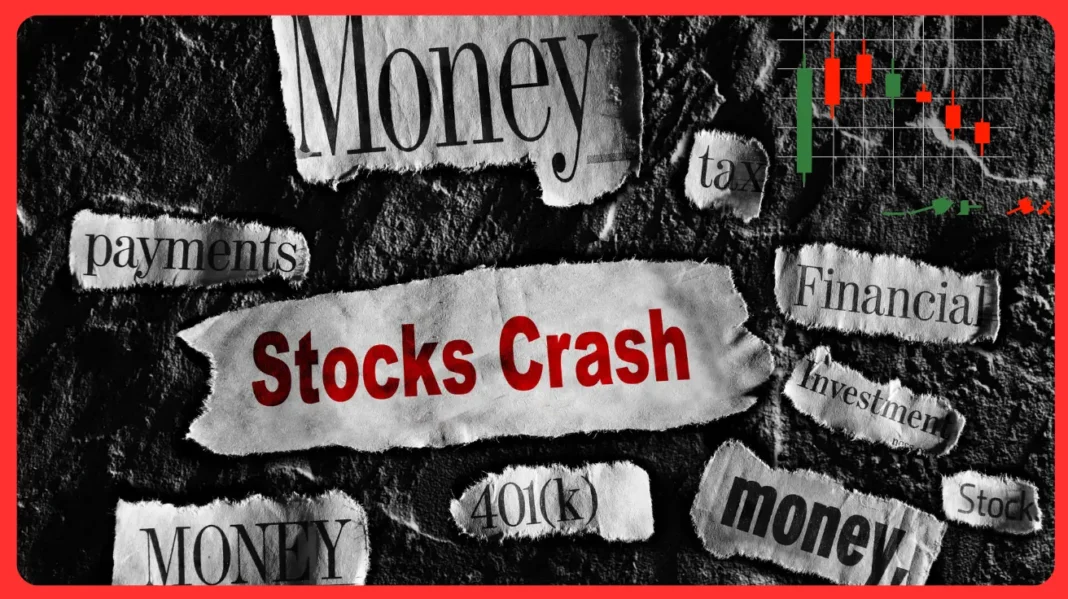The stock market is often seen as a place of opportunity, but it also comes with risks. Throughout history, there have been several significant market crashes in India that have caused investors to lose large amounts of money. Here, we look at the top 10 market crashes in India, explaining the reasons behind them and their impact on the economy.
1. Harshad Mehta Scam (1992)
- Date: April 1992
- Impact: The BSE Sensex fell by over 50% in just a few months.
- Reason: Stockbroker Harshad Mehta manipulated stock prices using illegal means, leading to a massive crash when the scam was uncovered.
- Outcome: The market lost about ₹1,000 billion, and many investors were wiped out.
2. Dot-com Bubble Burst (2000)
- Date: March 2000
- Impact: The BSE Sensex dropped by around 30% in the months following the crash.
- Reason: Overvaluation of tech stocks led to a bubble that burst when companies failed to deliver expected profits.
- Outcome: Technology stocks suffered the most, and the market took years to recover.
3. Global Financial Crisis (2008)
- Date: January 2008
- Impact: The BSE Sensex fell by nearly 60% from its peak.
- Reason: The collapse of Lehman Brothers in the US triggered a global financial crisis, leading to panic selling in India.
- Outcome: Investors lost trillions of rupees, and it took several years for the market to regain its former levels.
4. Demonetization (2016)
- Date: November 2016
- Impact: The BSE Sensex fell by about 7% within days of the announcement.
- Reason: The sudden decision by the Indian government to demonetize ₹500 and ₹1,000 currency notes led to widespread panic.
- Outcome: Though the market recovered quickly, the crash affected many sectors, especially real estate and banking.
5. COVID-19 Pandemic Crash (2020)
- Date: March 2020
- Impact: The BSE Sensex plunged by over 38% within a few weeks.
- Reason: The global spread of COVID-19 led to a complete lockdown in many countries, causing a sudden halt in economic activities.
- Outcome: The market saw a V-shaped recovery, but the crash wiped out significant wealth temporarily.
6. Ketan Parekh Scam (2001)
- Date: March 2001
- Impact: The BSE Sensex fell by about 20% over the course of the scam.
- Reason: Stockbroker Ketan Parekh manipulated the prices of select stocks, leading to a crash when the scam was exposed.
- Outcome: Many investors lost their savings, and the market remained volatile for several months.
7. Asian Financial Crisis (1997)
- Date: October 1997
- Impact: The BSE Sensex fell by around 15% in a few days.
- Reason: The crisis began in Thailand and spread across Asia, leading to massive outflows of capital from emerging markets like India.
- Outcome: The crash slowed down economic growth, but the Indian market managed to recover relatively quickly.
8. Satyam Scam (2009)
- Date: January 2009
- Impact: The BSE Sensex fell by around 7% on the day the scam was revealed.
- Reason: The founder of Satyam Computers, Ramalinga Raju, confessed to falsifying the company’s accounts, leading to a collapse in its stock price.
- Outcome: The scam shook investor confidence, but the market bounced back as corrective measures were taken.
9. Indian Budget Crash (2018)
- Date: February 2018
- Impact: The BSE Sensex fell by over 5% in the days following the announcement of the budget.
- Reason: The government’s decision to reintroduce the Long-Term Capital Gains (LTCG) tax on equity investments led to a sell-off.
- Outcome: While the market initially reacted negatively, it eventually adjusted to the new tax regime.
10. IL&FS Crisis (2018)
- Date: September 2018
- Impact: The BSE Sensex fell by around 10% in the weeks following the crisis.
- Reason: The infrastructure financing company IL&FS defaulted on its loans, causing panic in the financial sector.
- Outcome: The crisis led to tighter regulations, but it also caused temporary liquidity issues in the market.
Market crashes are a reminder of the risks associated with stock market investments. While they can be devastating, history has shown that the market eventually recovers. For long-term investors, staying calm during these periods of volatility is key. It’s also crucial to diversify investments and avoid putting all eggs in one basket.
Investors should always be aware of the risks and do their own research before making investment decisions. While market crashes can be scary, they also offer opportunities to buy quality stocks at lower prices.


